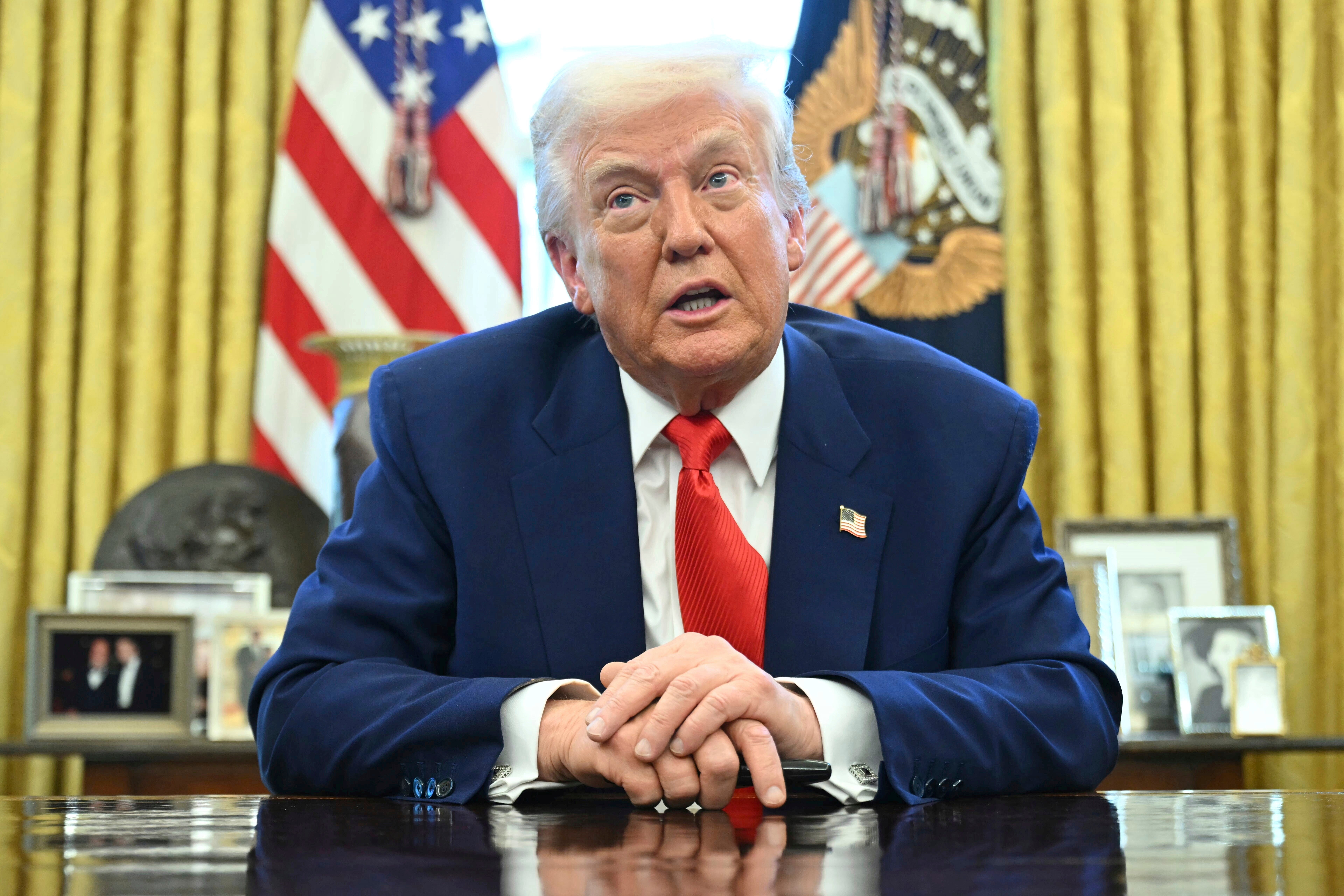Gordon Brown has called for an “economic coalition of the willing” to tackle the impact of Donald Trump’s sweeping global tariffs, arguing the UK should go much further in its post-Brexit cooperation with the EU.
The former prime minister called for impacted countries to adopt coordinated economic policies, including a reduction of interest rates, as well as urging Britain to go even further in renewing its ties with the EU and collaborate in a way that is “even more extensive than removing post-Brexit trade barriers”.
He called for a “Europe-wide, off-balance-sheet, special-purpose defence and security fund” in order to release resources elsewhere, saying that to “build back better” following the tariffs the UK must work “ever more closely with the EU”.
It comes after the US president said he would be delaying tariffs on most nations for 90 days while raising his tax rate on Chinese imports to 125 per cent.
Writing in the Guardian, Mr Brown, who still has close ties to Sir Keir Starmer, called for world leaders to draw on experiences of the 2008 financial crash, arguing they should offer extended credit to firms, lower interest rates and mobilise both the World Bank and International Monetary Fund to protect poorer countries which could see their industries severely damaged by tariffs.
“We need an economic coalition of the willing: like-minded global leaders who believe that, in an interdependent world, we have to coordinate economic policies across continents if we are to safeguard jobs and living standards”, the former prime minister wrote.
“Global problems require globally coordinated solutions. We need a bold, international response that measures up to the scale of the emergency.”
The so-called “coalition of the willing” is a group of 31 allied countries which have pledged strengthened support for Ukraine against Russian aggression, possibly including putting a peacekeeping force on the ground.
The group was established following Mr Trump’s election, amid question marks over the US president’s commitment to Nato and growing pressure on European nations to shoulder the burden of their own defence.
Mr Brown also issued strong criticism of the US president, saying the “world is being brought to its knees by one economy, outside which live 96 per cent of the population, who produce 84 per cent of the world’s manufactured goods”.
“It is not only the multilateral economic system that is under assault, but every single pillar of the rules-based order, from respect for the law to the self-determination of nations and historic commitments to humanitarian aid.
“International cooperation is in our collective interests, and a zero-sum world of competing nationalisms leaves us all poorer and less secure”, Mr Brown said.
But the government has repeatedly stressed its plans to take a “cool headed” approach to the tariffs, with Yvette Cooper insisting that Britain will be “really steady” in its response.
“We are seeing changes all the time. We are seeing quite a lot of global instability. We are seeing that in the economy, we are seeing it also on security, on defence issues”, the home secretary told Sky News.

“We are not keeping a running commentary on different trade negotiations, on the different approaches that other governments are taking.
“What we are doing is just being really steady about this. We have made clear our principles and our approach. We want to see a reduction of trade barriers and we want to negotiate good arrangements that are in the UK’s interests.”
Britain has been spared from the higher tariff rates hitting others and resisted taking immediate retaliatory action, unlike the EU, which has voted to impose countermeasures on some US goods.
Ministers still hope an economic agreement with Washington can be reached to soften the blow of some of Mr Trump’s tariffs, which also include a 25 per cent charge on cars and others on steel and aluminium.
Chancellor Rachel Reeves will seek to negotiate with the US when she visits Washington at the end of April for the International Monetary Fund’s spring meeting of global finance ministers, she told the Financial Times.
She also said a UK-EU summit on May 19 would be a chance “to refresh our relationship and make it easier for businesses to trade”.
The Department for Business and Trade has been contacted for comment.
Is Labour about to bring steel back under state ownership?
Tesla in freefall and rows with Trump’s tariff adviser - inside Elon Musk’s meltdown
Trump stokes ‘market manipulation’ accusations with tariffs U-turn: Live updates
Tariffs live: FTSE reacts after Trump’s climbdown but China hits out at US ‘bullying’
Minister who previously called for abolishing monarchy announces change of heart
Three times more Davids than Sarahs as staggering local election inequality exposed







